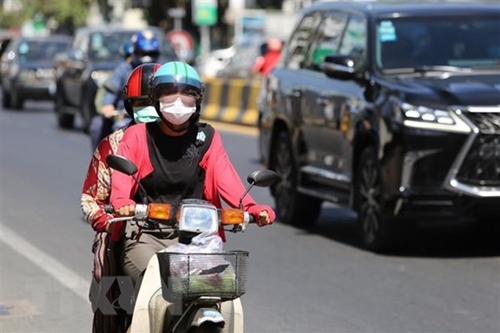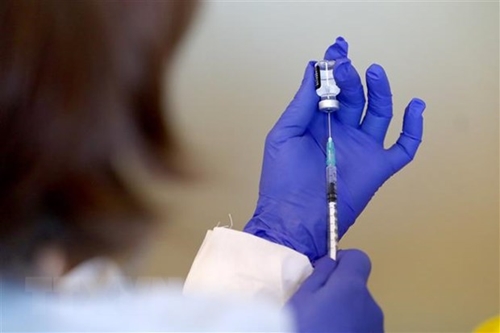On January 4, students wearing masks lined up for temperature checks and hand washing before being allowed to enter the Sovannaphumi primary school in the capital Phnom Penh.
While private schools have started reopening this week, students at public schools are due to return next week.
    |
 |
|
People in Phnom Penh wear mask on streets |
Cambodia has also reopened the Tuol Sleng Genocide Museum, a famous tourist destination in Phnom Penh.
In November, Cambodia put in place a range of restrictions after an outbreak of community transmission linked with a 56-year-old woman who had traveled to the country’s two biggest cities since November 20.
Meanwhile, the Khmer Times reported that the Cambodian Government has announced the postponement of the 7th River Festival, scheduled to take place in Kampong Thom province, due to the pandemic and decided that the provincial administration should begin preparations for the next River Festival in 2022.
The 6th River Festival in Battambang province last year was held as scheduled despite fears over COVID-19.
In neighboring Thailand, authorities warned on January 4 that the country could face a strict lockdown as infection numbers climbed, spurring it to declare 28 provinces high-risk zones.
The same day, Singapore said it will consider relaxing travel restrictions for people who have been vaccinated against COVID-19, including for those planning to visit the city-state for the World Economic Forum (WEF) in May.
The country has largely banned leisure travel because of the pandemic, and has limited business and official travel agreements with certain nations.
Last week, it became one of the first countries in Asia to embark on a national inoculation program.
Singaporean Health Minister Gan Kim Yong said more vaccines are expected to arrive in Singapore in the next few months, including those by U.S. firm Moderna and China's Sinovac.
He said in the parliament that there will be enough COVID-19 vaccines for Singaporeans and long-term residents of Singapore by the third quarter of 2021 if all goes according to plan.
    |
 |
|
Indonesia has secured more than 329 million doses of COVID-19 vaccines, most notably from Pfizer and its partner BioNTech, and AstraZeneca. |
The country received its first shipments of the Pfizer-BioNTech COVID-19 vaccine in December.
In Indonesia, a mass vaccination program is set to start next week as about 700,000 doses of vaccines have already been widely distributed.
The nation has secured more than 329 million doses of COVID-19 vaccines, most notably from Pfizer and its partner BioNTech, and AstraZeneca. However, those to be used in the first phase are CoronaVac, the vaccine produced by China’s Sinovac.
Budi Gunadi Sadikin, Indonesia’s health minister, has said that the country needs to inoculate about 181 million people, or roughly 67 percent of its population. About 1.3 million health workers would be first in line for the shots, followed by public servants.
Source: VNA